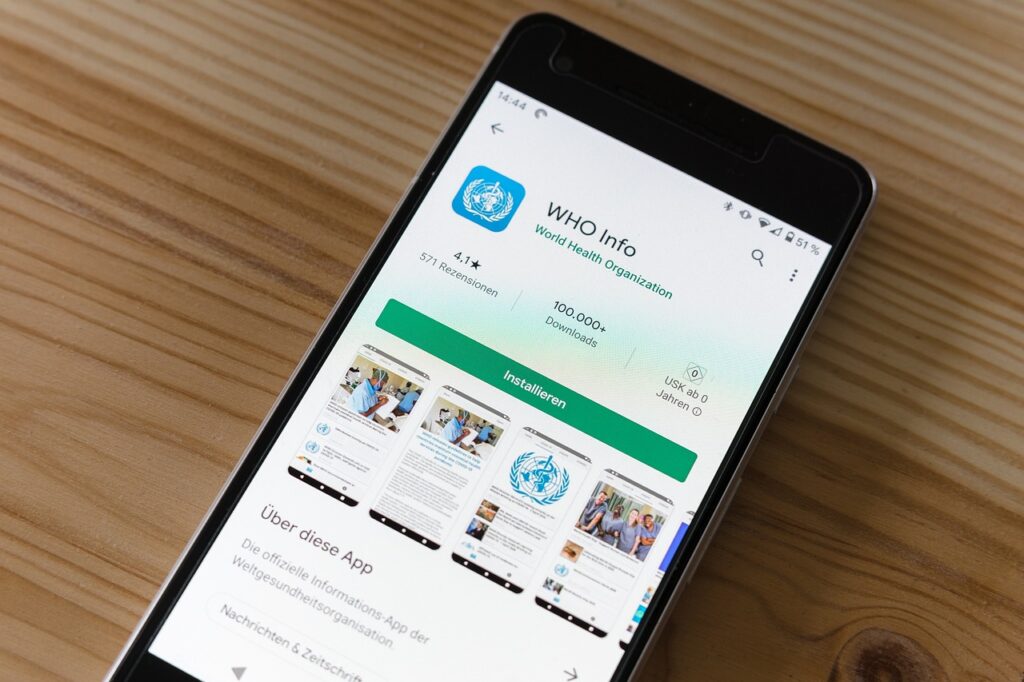Mobile App Development
Mobile App Development in the Modern Era
In the contemporary digital landscape, mobile applications have become an
integral part of everyday life. The evolution of smartphones and the widespread
adoption of mobile technology have led to a tremendous surge in the demand for
innovative and user-friendly mobile applications across various industries. This
article delves into the key aspects, trends, challenges, and prospects of mobile
app development in this age.
Today, the two most prominent mobile platforms are iOS from Apple and Android
from Google. Phones and tablets from Apple come preloaded with essential
applications, including a full web browser and the Apple App Store. Android
devices also come preloaded with similar apps and you can install more using
the Google Play Store.
The Scope of Mobile App Development
Mobile app development is the process of creating software applications that run
on mobile devices like smartphones, tablets, and wearables. It involves a vast
range of platforms, frameworks, programming languages, and methodologies to
design, develop, test, and deploy applications.
In other words, mobile app development is the process of writing software for
small, wireless computing devices such as smartphones and other hand-held
devices. Of course, It has its roots in traditional software development, much like
web application development. However, the critical difference between the two is
that mobile apps are often written to take full advantage of the unique features of
a particular mobile device. For example, a gaming app might be designed to use
the iPhone's accelerometer or a mobile health app might be written to take
advantage of a smartwatch's temperature sensor.
Diversifying App Compatibility
During the early stages of mobile app development, creating an app that could
perform efficiently on any device required native development. This involved
writing new code that was specific to the processor of each device. Nowadays,
most mobile applications are device-independent.
In the past, creating an app that could run on multiple operating systems required
a lot of work. There was minimal code that could be reused from the initial
development project. Essentially, every device needed its mobile app
development project that had its codebase. Modern cross-platform tools now use
common languages such as C# and JavaScript to share code across projects.
These tools integrate well with application lifecycle management tools like
Jenkins. This enables developers to use a single codebase that can be utilized
for Apple iOS, Google Android, and progressive web apps (PWAs).
PWAs are designed to take advantage of native mobile device features without
requiring users to visit an app store, make a purchase, or download software
locally. Instead, PWAs can be located with a search engine query and accessed
immediately through a browser. This eliminates the need for e-commerce
merchants to develop native apps for multiple mobile operating systems.
PWAs use progressive downloading, similar to YouTube videos, which provides
users with a better experience than a traditional website that uses a responsive
design. Instant mobile apps and progressive web apps are interchangeable
terms.
Before beginning app development, it is important to determine which type of app
you want to create. Here is a highlight of various mobile app development
technologies along with information about each.
Native apps
Native apps are built using development tools specific to mobile operating
systems like Apple iOS and Google Android. Although they allow for
customization, they tend to be more expensive.
Hybrid apps
Hybrid apps are web apps that work like native apps. They are created using
standard web technologies such as HTML, CSS, and JavaScript. Hybrid apps
are cheaper and faster to develop, but their features are less robust than native
apps.
Progressive web apps (PWAs)
Progressive web apps (PWAs) are essentially websites that look and behave
like mobile apps. They are developed with web technologies such as Facebook
React.
Encapsulated apps
Encapsulated apps are apps that run inside a container app. They are useful for
less experienced developers and are created with drag-and-drop tools like
Microsoft Power App. However, they lack isolation from the core operating
system and can be problematic due to their newness and OS lock-in.
Finally, frameworks and libraries are reusable code that can speed up the
development of a mobile app.
#Trends Shaping Mobile App Development
Keeping up with the latest trends is important in mobile app development. It helps
developers create apps that are easy to use, look great, and have the latest
features. By staying on top of trends, developers can also find new opportunities
and stay ahead of the competition in the mobile app industry.

1. 5G Technology: The emergence of 5G technology has transformed the
development of mobile
pplications, providing faster download speeds, lower
latency, and improved user experiences. Developers are utilizing 5G capabilities
to create high-performance, data-intensive applications.
2. Artificial Intelligence and Machine Learning: Integrating AI and ML into mobile apps has become increasingly common. AI enhances app functionality in
areas such as personalized user experiences, predictive analytics, chatbots, and
image recognition.
3. Internet of Things (IoT) Integration: The advent of IoT has opened up new opportunities for mobile apps. Developers can now create apps to manage smart
home devices, monitor health metrics, and streamline industrial processes.
4. Augmented Reality (AR) and Virtual Reality (VR): AR and VR technologies are revolutionizing the way mobile apps engage users. Whether it's for gaming,
education, or retail, these technologies provide truly unique immersive
experiences.
5. Cloud-based technology: Cloud-based technologies have greatly impacted the current trends in mobile app development. They offer a host of benefits to the
software engineering industry and enhance the performance, security, and
accessibility of software solutions. Some of the top cloud-based apps include
Google Drive, Dropbox, and Asana, among others.
Roadblocks and Challenges
Developing mobile apps comes with various challenges that developers must overcome to create successful applications. These challenges include ensuring
compatibility across different devices and operating systems, optimizing
performance, and ensuring security. To overcome these obstacles, developers
must first understand them and then take appropriate measures. Developers
must account for three major obstacles in mobile app development. They are:
1. Fragmentation: Developers face a significant challenge in providing optimal performance and app compatibility across various platforms due to the
abundance of devices, operating systems, screen sizes, and versions.
2. Security Concerns: As mobile devices continue to store an increasing amount of sensitive data; it becomes more important than ever to implement
strong security measures within applications to safeguard user information
against potential cyber threats and data breaches.
3. User Experience (UX): Designing user experiences that are both functional and visually appealing can be a challenging task. It requires a delicate balance
between creating an intuitive interface and catering to the diverse preferences of
users. With careful design considerations, however, it is possible to create
seamless and engaging user experiences that meet the needs of a wide range of
users.
Nevertheless, the future seems bright!
The world of mobile app development is full of promise as new ideas and
inventions are set to change the industry. The development of AI, AR, VR, and
IoT will continue to allow the creation of more immersive, customized, and
intelligent apps. Furthermore, blockchain technology integration and app security
emphasis will play an important role in shaping the future of mobile app
development.
In this era of mobile app development, rapid evolution and innovation are taking
place and you need the right partners to journey with you. At Advocate Digital we
help you adapt to new trends, face challenges, and utilize emerging technologies
to create cutting-edge mobile applications that meet the ever-changing needs
and preferences of users. Lets elevate your business together.

